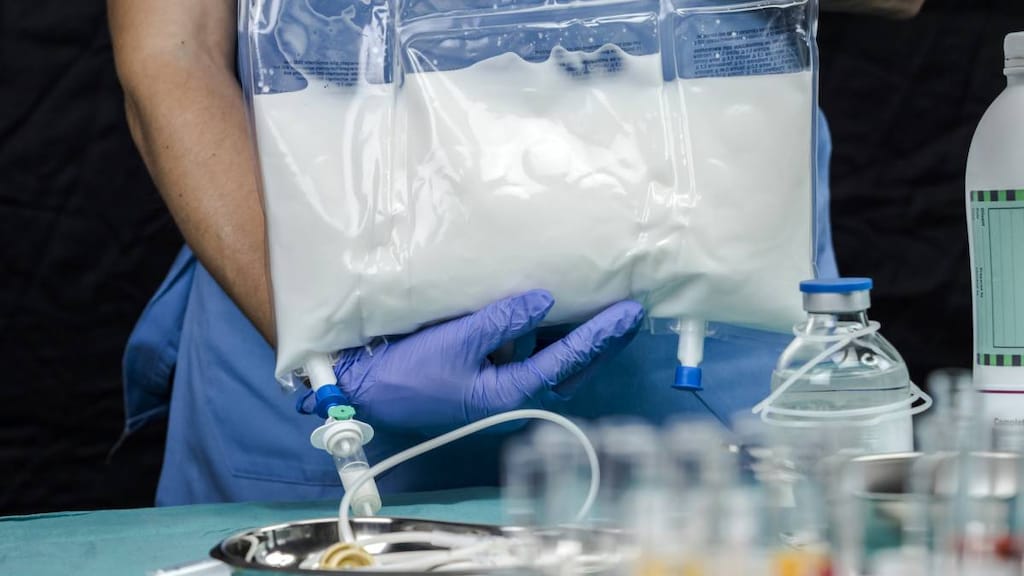
What is total parenteral nutrition (TPN)?
Total parenteral nutrition is a way of bypassing the digestive system and directly supplying into a vein all the nutritional requirements a person needs to survive.
Total parenteral nutrition may also be called TPN.
When is total parenteral nutrition (TPN) used?
TPN is given to people who cannot eat or who should not eat. Situations where TPN is used include:
- If a gastrointestinal fistula is present
- If the bowel needs to be rested (such as in people with Crohn’s disease, pancreatitis, or ulcerative colitis)
- In people who have suffered severe burns
- Malnourished individuals
- Prolonged diarrhea in children
- Short bowel syndrome due to surgery
- When the intestine is blocked or obstructed
- When the small intestine is not absorbing nutrients properly.
How is total parenteral nutrition (TPN) administered?
TPN is usually given through a catheter into a large central vein, usually the superior vena cava. This is because TPN solutions are concentrated and can cause the formation of blood clots (thrombosis) in smaller veins. An alternative vein is the inferior vena cava.
The catheter is inserted under a local anesthetic and in a sterile environment, such as an operating room, to decrease the risk of infection. Once it has been inserted an x-ray is performed to make sure that it is in the correct place.
Total parenteral nutrition (TPN) is normally only given in a hospital, but it may be given at home if needed long-term.
What is contained in total parenteral nutrition (TPN)?
A TPN mixture can change depending on a person’s age, height, medical conditions, weight, and if any vitamin or mineral deficiencies exist.
A typical TPN solution usually contains:
- Dextrose (sugar) for energy
- Amino acids (protein)
- Lipids (fats)
- Calcium
- Chloride
- Chromium
- Copper
- Manganese
- Magnesium
- Phosphate
- Potassium
- Sodium
- Vitamins
- Zinc.
Insulin may also be added to the mixture and some aspects of the mixture may need to be altered if the person has liver or kidney disease.
TPN is usually made up daily under sterile conditions and adults need approximately 2L of TPN per day. Daily monitoring ensures that the TPN contents change depending on a person’s daily nutritional requirements.
Are there any side effects of total parenteral nutrition (TPN)?
TPN should only be used short-term in people with a functioning gastrointestinal tract. Enteral nutrition (feeding directly into the stomach or small intestine) is preferred for these people. This is because TPN does not preserve the function of the gastrointestinal tract very well and is expensive.
TPN can also cause complications such as:
- Electrolyte and fluid abnormalities
- Gallbladder complications
- Glucose abnormalities
- Infection
- Liver failure
- Reactions to the lipids contained in the mixture (such as shortness of breath, nausea, headache, sweating)
- Thrombosis.
Article references
- Total Parenteral Nutrition. Stanford Health Care 2020 https://stanfordhealthcare.org/medical-treatments/t/total-parenteral-nutrition-therapy.html
- Thomas D. Total Parenteral Nutrition (TPN) 2018 https://www.msdmanuals.com/en-nz/professional/nutritional-disorders/nutritional-support/total-parenteral-nutrition-tpn
- Home Parenteral Nutrition. Mayo Clinic. 2020 https://www.mayoclinic.org/tests-procedures/total-parenteral-nutrition/about/pac-20385081




